Scientists are on the verge of a dental miracle.
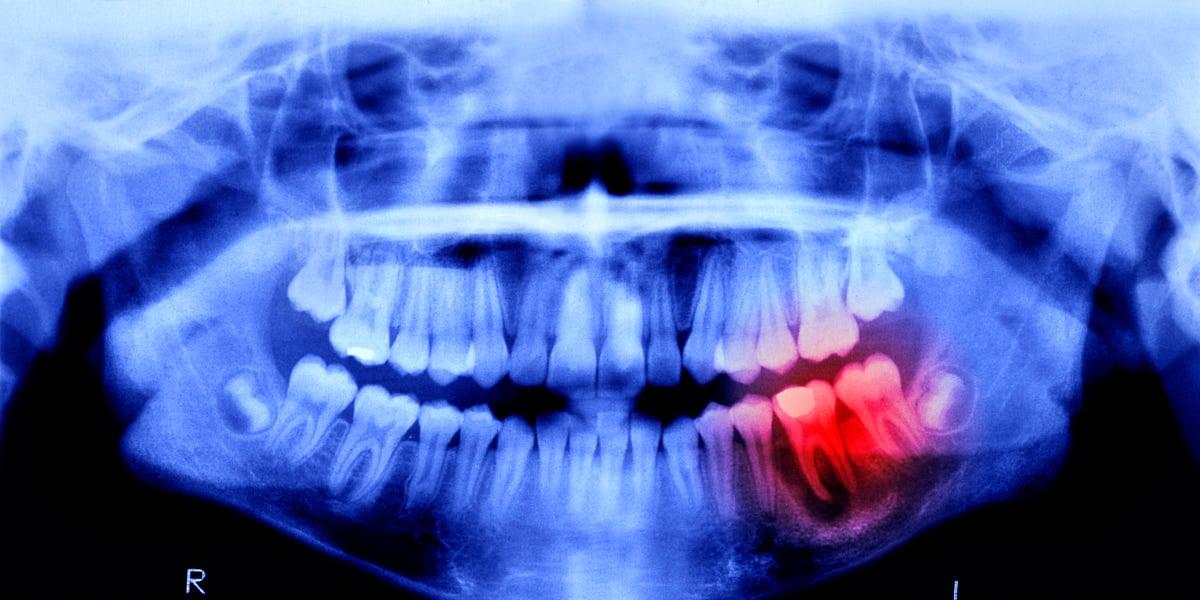

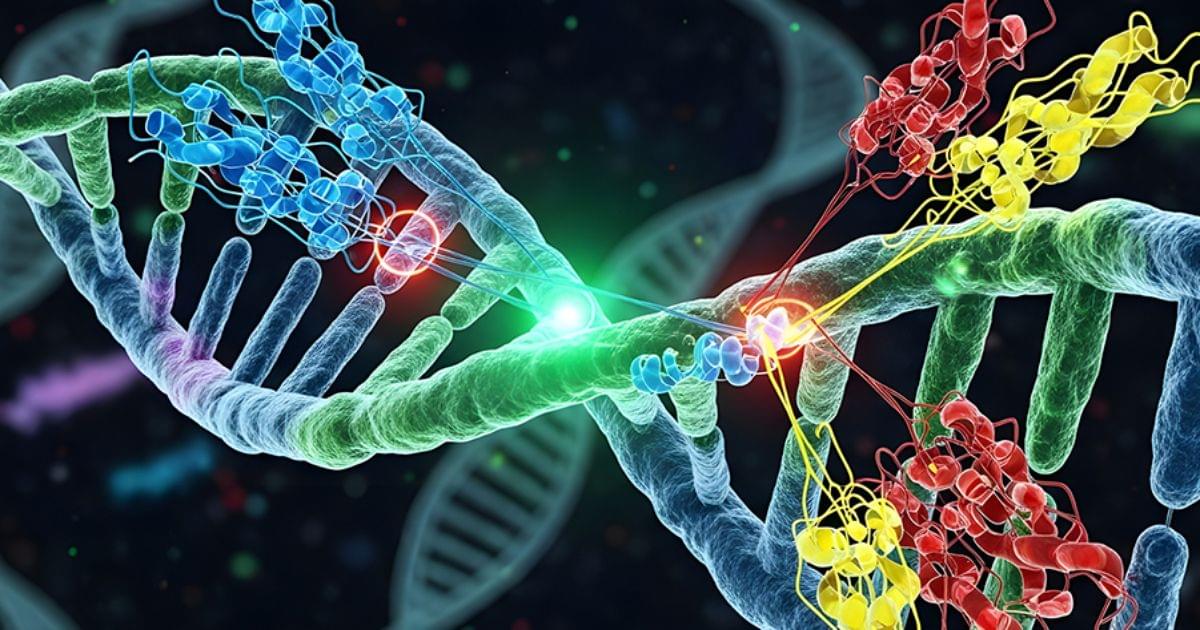
In a surprising discovery, University of New Mexico researchers have found that OTULIN – an enzyme that helps regulate the immune system – also drives the formation of tau, a protein implicated in many neurodegenerative diseases, as well as brain inflammation and aging.
In a study published in the journal Genomic Psychiatry, the researchers reported that when they deactivated OTULIN, either by administering a custom-designed small molecule or knocking out the gene that codes for it, it halted the production of tau and removed it from neurons. The study was conducted on two different types of cells, some derived from a patient who had died from late-onset sporadic Alzheimer’s disease, and the rest from a line of human neuroblastoma cells that are frequently used in neuroscience research.
The discovery opens the door to potential treatments for Alzheimer’s and other neurodegenerative diseases, said Karthikeyan Tangavelou, PhD, a senior scientist in the lab of Kiran Bhaskar, PhD, professor in the Department of Molecular Genetics & Microbiology in the UNM School of Medicine.
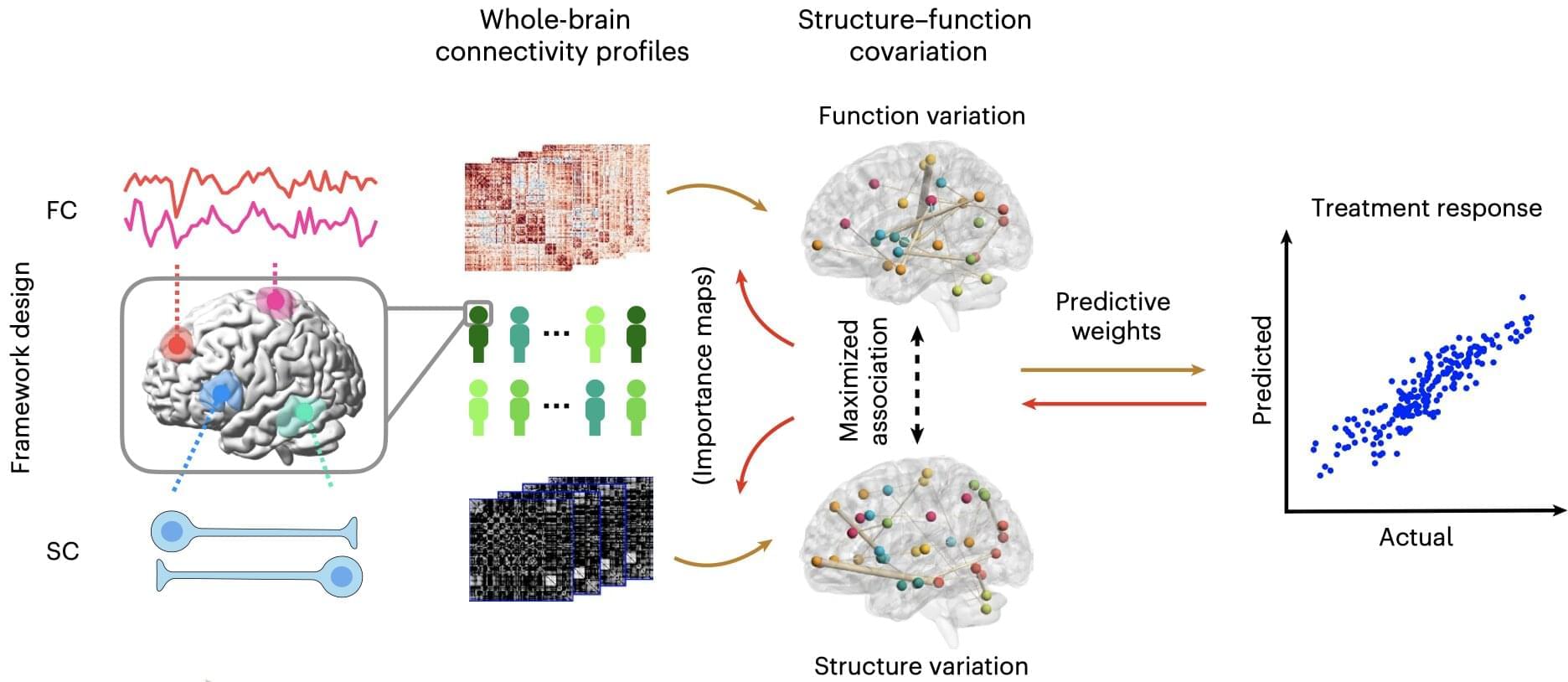
Depression is one of the most widespread mental health disorders worldwide, affecting approximately 4% of the global population. It is characterized by a persistent low mood, disruptions in typical sleeping and/or eating habits, a lack of motivation, a loss of interest in daily activities and unhelpful thought patterns.
There are now various treatments for depression, including psychotherapy-based interventions and different types of antidepressant medications. Identifying the best treatment strategy, however, is not always easy, and many patients try different medications before they find one that works for them.
Researchers at Stanford University, Lehigh University, the University of Texas at Austin and other institutes explored the potential of machine learning techniques, computational models that can identify patterns in data, for predicting the responses of individual patients to two different antidepressants and to a placebo (i.e., a pill that contains no active chemicals).
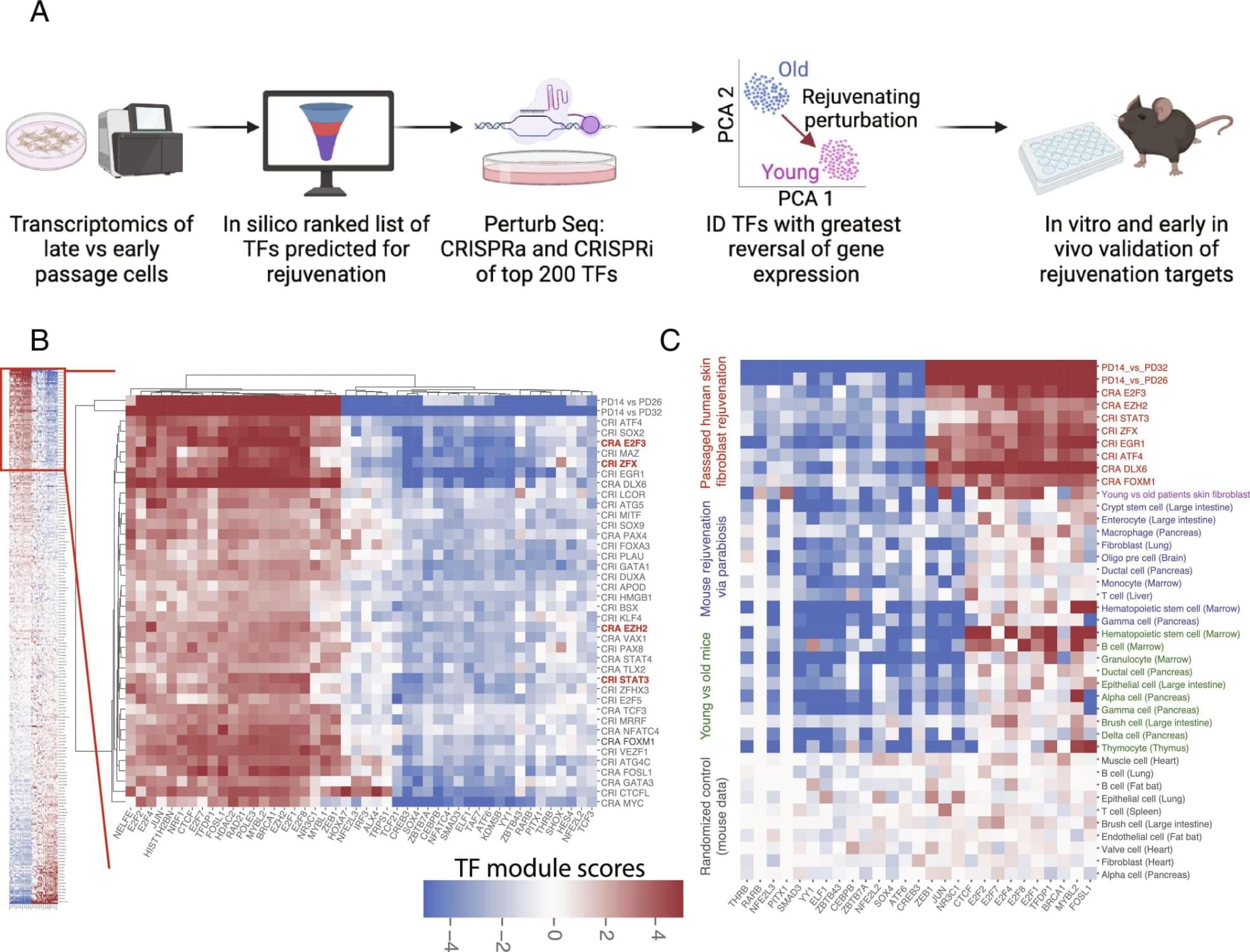
Significance.
Cellular rejuvenation through transcriptional reprogramming has emerged as exciting approach to counter aging. However, to date, only a few of rejuvenating transcription factor (TF) perturbations have been identified. In this work, we developed a discovery platform to systematically identify single TF perturbations that drive cellular and tissue rejuvenation. Using a classical model of human fibroblast aging, we identified more than a dozen candidate TF perturbations and validated four of them (E2F3, EZH2, STAT3, ZFX) through cellular/molecular phenotyping. At the tissue level, we demonstrate that overexpression of EZH2 alone is sufficient to rejuvenate the liver in aged mice, significantly reducing fibrosis and steatosis, and improving glucose tolerance. Our work expanded the list of candidate rejuvenating TFs for future translation. Abstract.
Cellular rejuvenation through transcriptional reprogramming is an exciting approach to counter aging. Using a fibroblast-based model of human cell aging and Perturb-seq screening, we developed a systematic approach to identify single transcription factor (TF) perturbations that promote rejuvenation without dedifferentiation. Overexpressing E2F3 or EZH2, and repressing STAT3 or ZFX, reversed cellular hallmarks of aging—increasing proliferation, proteostasis, and mitochondrial activity, while decreasing senescence. EZH2 overexpression in vivo rejuvenated livers in aged mice, reversing aging-associated gene expression profiles, decreasing steatosis and fibrosis, and improving glucose tolerance. Mechanistically, single TF perturbations led to convergent downstream transcriptional programs conserved in different aging and rejuvenation models. These results suggest a shared set of molecular requirements for cellular and tissue rejuvenation across species. Sign up for PNAS alerts.
Get alerts for new articles, or get an alert when an article is cited. Cellular rejuvenation through transcriptional reprogramming is an exciting approach to counter aging and bring cells back to a healthy state. In both cell and animal aging models, there has been significant recent progress in rejuvenation research. Systemic factors identified in young blood through models such as heterochronic parabiosis (in which the circulatory systems of a young and aged animal are joined) rejuvenate various peripheral tissues and cognitive function in the brain (1–4). Partial reprogramming at the cellular level with the Yamanaka factors (four stem cell transcription factors) reverses cellular and tissue-level aging markers and can extend lifespan in old mice (5–8). These discoveries support the notion that transcriptional reprogramming is a powerful approach to improving the health of cells and tissues, and one day could be used as an approach for human therapeutics. However, to date, only a couple of rejuvenating transcription factor (TF) perturbations have been identified (9, 10) and most of them require the overexpression of TFs. We hypothesized that there are multiple other TF perturbations which could reset cells and tissues back to a healthier or younger state—rejuvenating them. Identifying complementary rejuvenating strategies is important as it will increase the chance of successful future translation. We developed a high-throughput platform, the Transcriptional Rejuvenation Discovery Platform (TRDP), which combines computational analysis of TF binding motifs and target predictions (Materials and Methods), global gene expression data of old and young cell states, and experimental genetic perturbations to identify which TF can restore overall gene expression and cell phenotypes to a younger, healthier state. We developed TRDP to be applicable to any cell type, and in both aging and disease settings, with the only requirements being baseline comparison of gene expression data comparing the older/diseased state to the younger/healthier state and the ability to perform genetic perturbations. To model aging in vitro as a validation of our approach, we used the canonical aging model of passaged fibroblasts (11, 12). We tested 400 TF perturbations via our screen and validated reversal of key cellular aging hallmarks in late passage human fibroblasts for four top TFs: E2F3, EZH2, STAT3, and ZFX. Moreover, EZH2 overexpression in vivo rejuvenated livers in aged mice—reversing aging-associated global gene expression profiles, significantly reducing steatosis and fibrosis, and improving glucose tolerance. These findings point to a conserved set of molecular requirements for cellular and tissue rejuvenation.
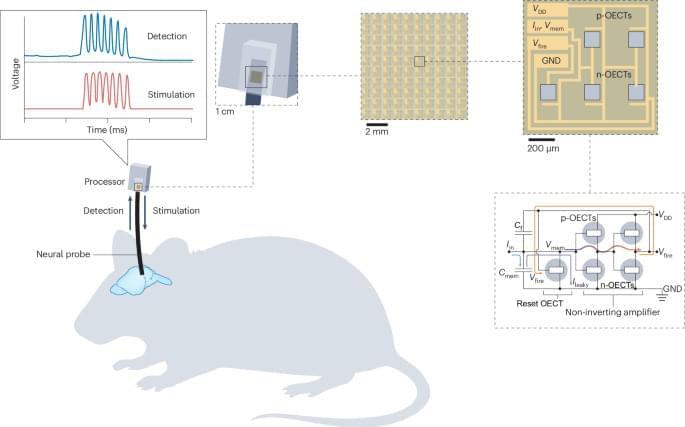
Organic electrochemical neurons respond to brain signals in real time, firing at biologically relevant speeds. Their flexibility and low power use could enable soft, implantable systems for closed-loop neuromodulation and future brain–computer interfaces.
You have full access to this article via your institution.
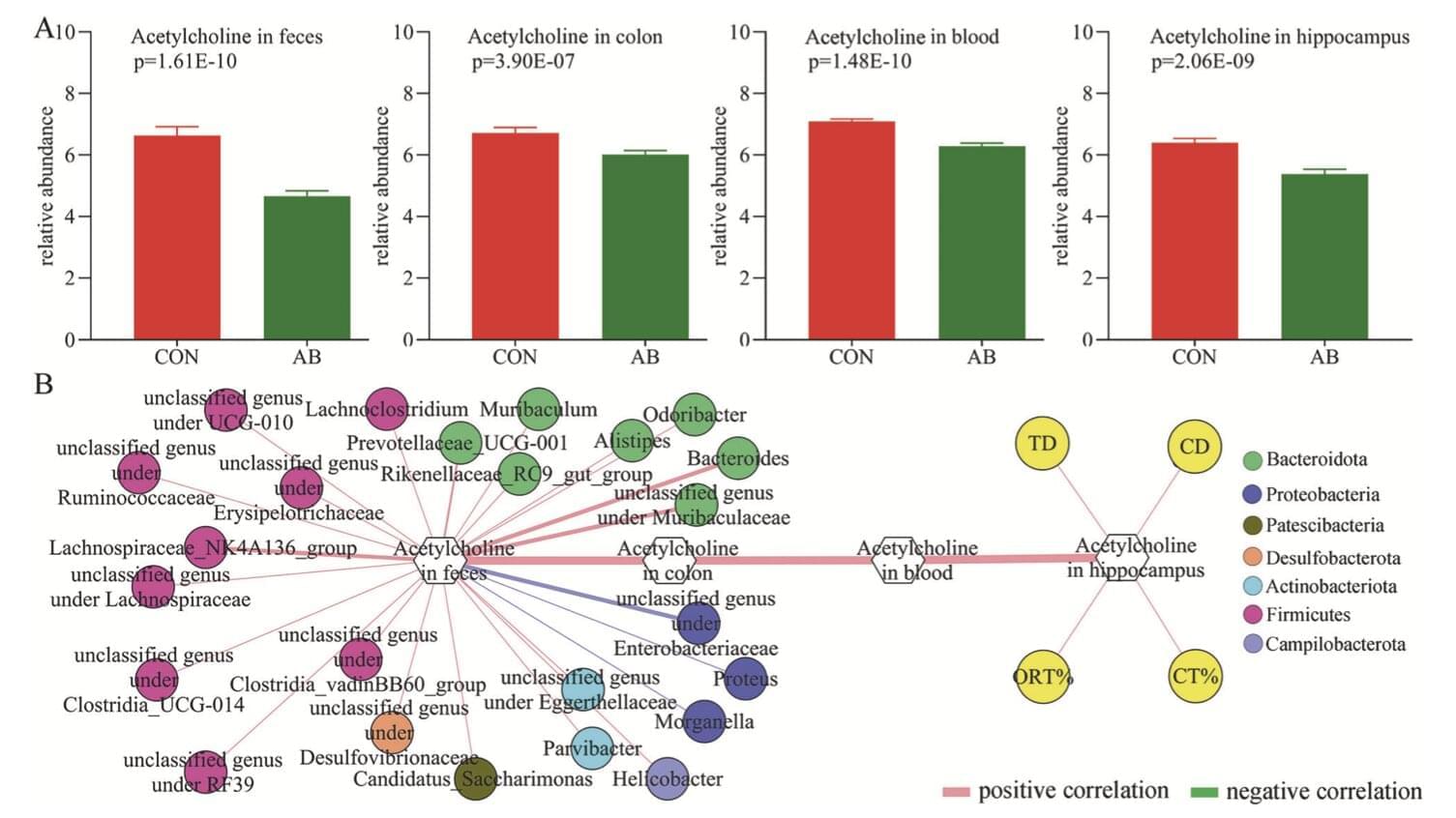
Antibiotics (ABs) are among the most used pharmaceutical drugs worldwide, as they are currently the most effective medicines for the treatment of bacterial infections. An excessive use of these drugs, however, can damage the gut microbiota, the population of microorganisms living in the intestines that help us to digest food.
Bacteria and other microorganisms in the gut are known to also communicate with the brain via a communication pathway that is referred to as the gut-brain axis. Recent research suggests that some gut bacteria help to reduce inflammation and support the healthy functioning of the brain.
Researchers at the First Affiliated Hospital of Chongqing Medical University have carried out a study exploring the possibility that the effects of ABs on gut bacteria could also facilitate the development of mental health disorders, particularly increasing anxiety. Their findings, published in Molecular Psychiatry, suggest that ABs do in fact damage gut bacteria that help regulate mood, linking their excessive use with higher levels of anxiety.
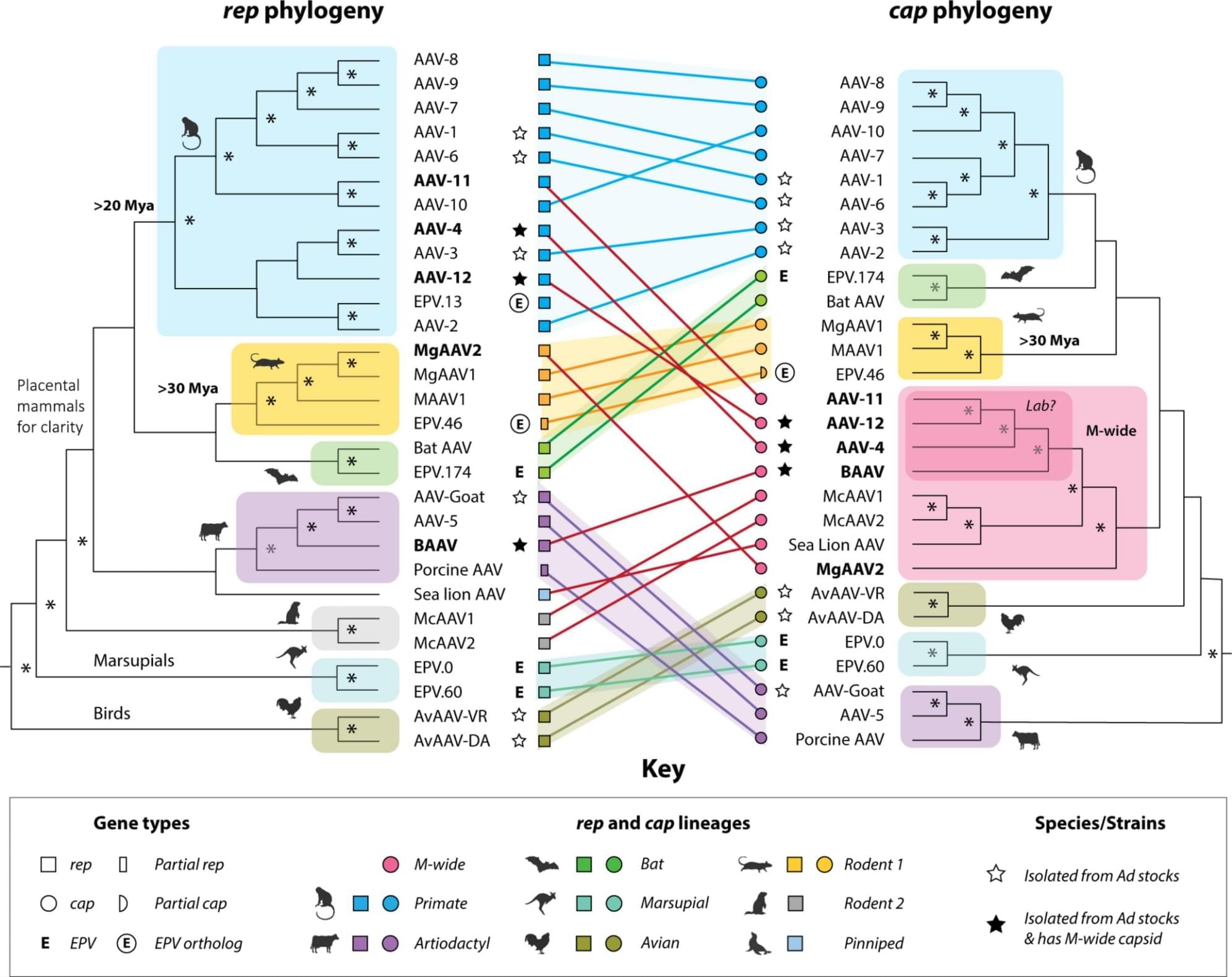
An interesting bioinformatic analysis which offers evidence suggesting that laboratory handling of AAVs may have contributed to horizontal gene transfer of the M-wide capsid across lineages in the wild. [ https://www.pnas.org/doi/10.1073/pnas.2505928122](https://www.pnas.org/doi/10.1073/pnas.2505928122)
Adeno-associated viruses (AAVs) are nonpathogenic DNA viruses with potent gene delivery capabilities, making them essential tools in gene therapy and biomedical research. Despite their therapeutic importance, key aspects of AAV natural biology remain obscure, complicating efforts to explain rare AAV-associated diseases and optimize gene therapy vectors. By analyzing sequence data from virus isolates and endogenous viral elements (EVEs), I reveal a striking evolutionary pattern: While AAV sublineages, defined by the replication-associated (rep) gene, have broadly codiverged with host groups over millions of years, capsid (cap) diversity has been shaped by extensive recombination. In particular, one capsid lineage, Mammalian-wide (M-wide), has spread horizontally across diverse rep lineages and host taxa through multiple recombination events.
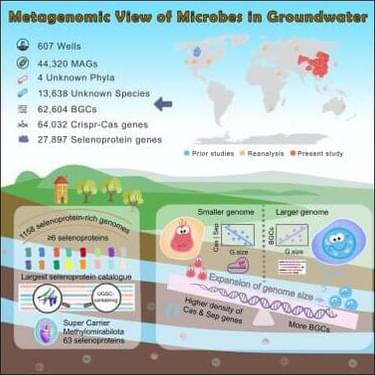
Deng et al. constructed a comprehensive bacterial and archaeal genome catalog from groundwater and uncovered extensive previously unknown microbial diversity. This study reveals genome size as an axis underlying allocation of microbial defense and redox regulation and identifies groundwater as a hotspot of selenium metabolism and functional innovation.
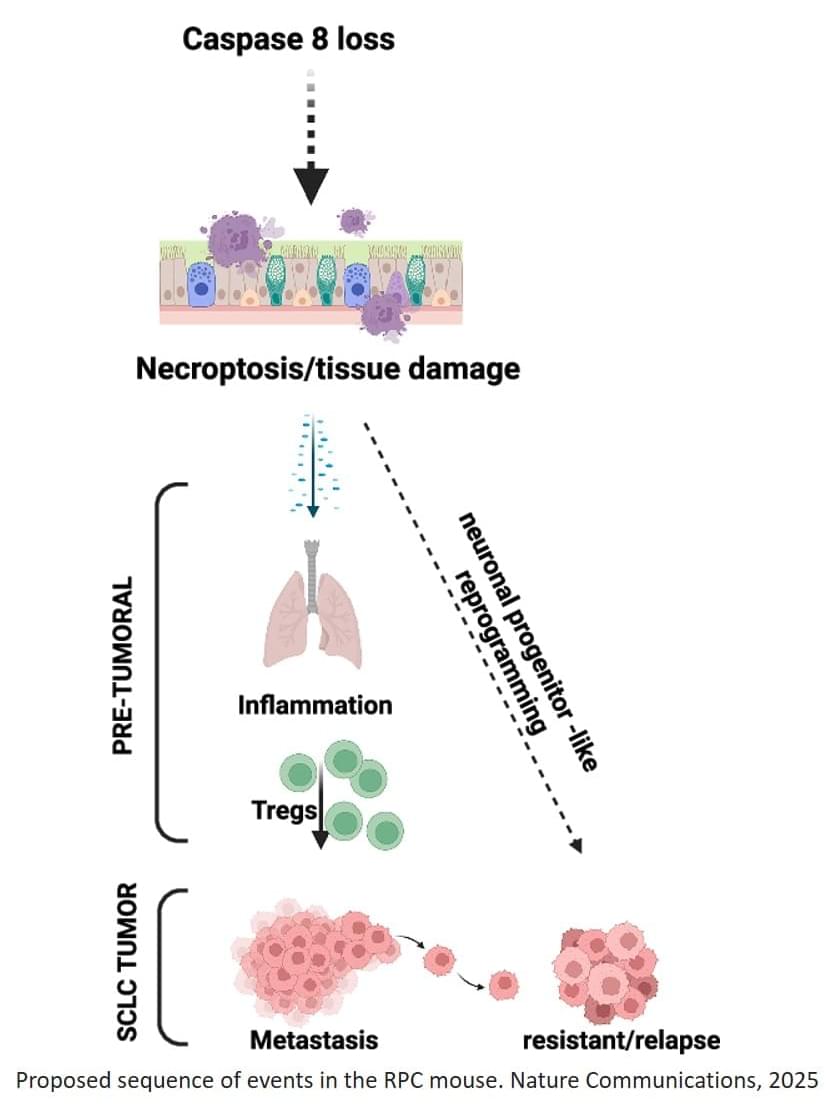
Unlike other epithelial cancers, small cell lung cancer (SCLC) shares features with neuronal cells, including lack of caspase-8 expression, a protein involved in programmed, non-inflammatory cell-death (apoptosis), a mechanism that is essential to eliminate faulty or mutated cells and to maintain health.
To better mimic the features of human SCLC, the team generated and characterized a novel genetically engineered mouse model lacking caspase-8. Using this new model, the team observed that when this protein is missing, an unusual chain reaction sets off.
“The absence of caspase-8 leads to a type of inflammatory cell death called necroptosis that creates a hostile, inflamed environment even before tumors fully form” explains the senior author. “We were also intrigued to find that pre-tumoral necroptosis can in fact promote cancer by conditioning the immune system,” the author continues.
The inflammation creates an environment where the body’s anti-cancer immune response is suppressed, preventing immune cells from attacking threats like cancer cells. This, in turn, can promote tumor metastasis. Surprisingly, the researchers observed that this inflammation also pushes the cancer cells to behave more like immature neuron-like cells, a state that makes them better at spreading and that is associated with relapse.
While it remains unknown whether similar pre-tumoral inflammation also occurs in human patients, this work identifies a mechanism contributing to the aggressiveness and patient relapse in SCLC that could be exploited as a way to improve the efficiency of future therapies and early-stage diagnostic methods. ScienceMission sciencenewshighlights.
Small cell lung cancer (SCLC) is one of the most aggressive forms of lung cancer, with a five-year survival rate of only five percent. Despite this poor prognosis, SCLC is initially highly responsive to chemotherapy. However, patients typically relapse and experience very rapid disease progression. Current research into the biological mechanisms behind SCLC remains essential in order to prolong treatment responses, overcome relapse and, ultimately, improve long-term patient outcomes.
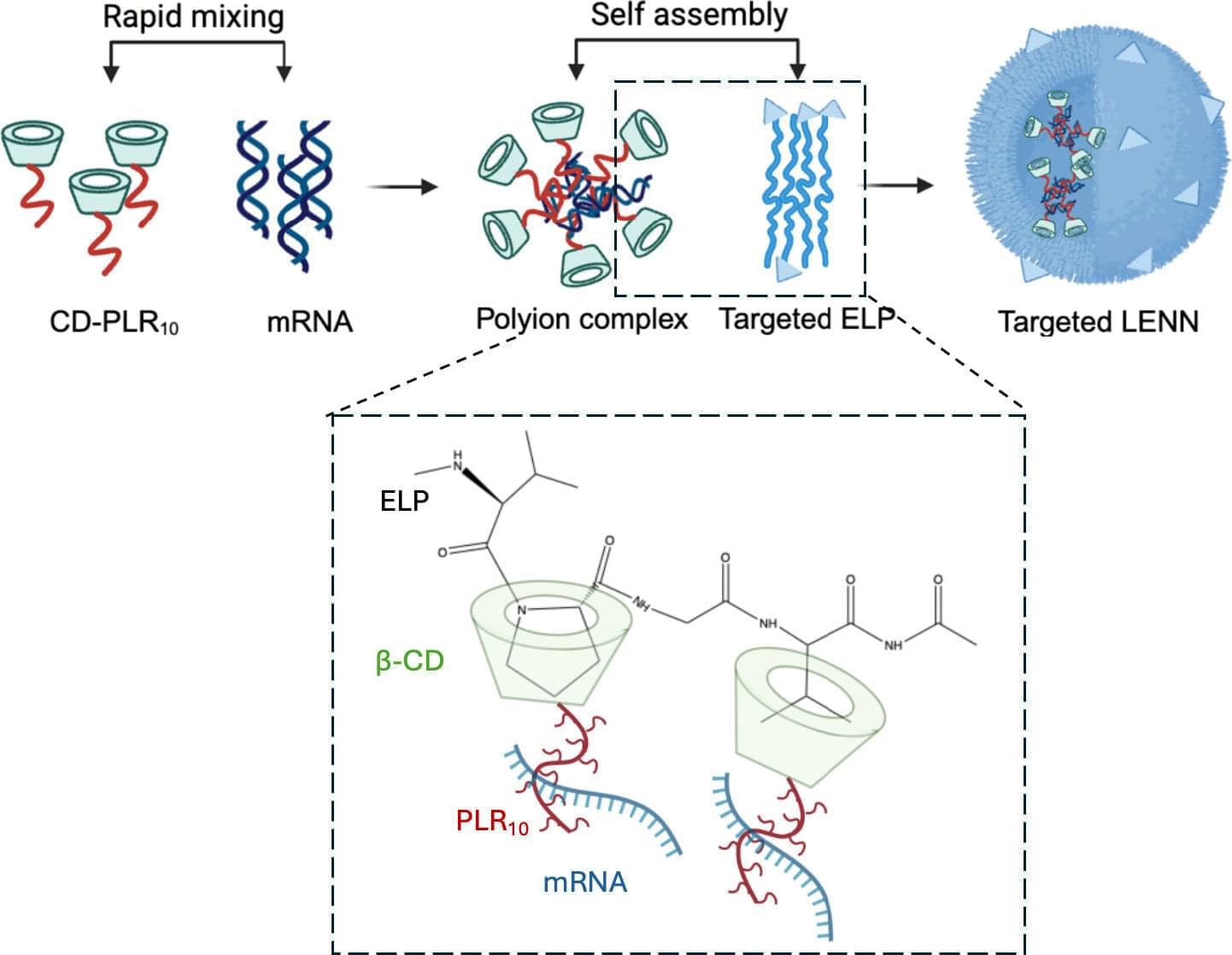
Published, peer-reviewed research shows a patent-pending, virus-mimicking platform technology developed at Purdue University improves upon traditional methods of targeting bladder cancer cells with messenger RNA (mRNA) therapies.
The study, published in the Proceedings of the National Academy of Sciences, highlights compelling features of the therapy-delivering system with respect to size, targetability, encapsulation efficiency, complex stability, gene expression and “green” manufacturability.
David Thompson led the team conducting research about layer-by-layer elastin-like polypeptide nucleic acid nanoparticle (LENN). He is a professor in the James Tarpo Jr. and Margaret Tarpo Department of Chemistry and a member of the Purdue Institute for Cancer Research and the Purdue Institute for Drug Discovery. Saloni Darji, a commercialization postdoctoral research associate, is the paper’s lead author.